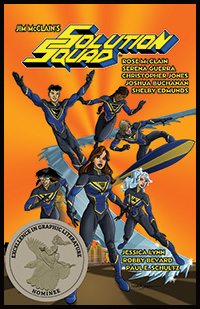One of my favorite things about spring and summer was going to the Copemish Flea Market with my Grandma McClain. Held every Saturday, my grandma would always prefer to get fresh fruits and vegetables there from a farm stand, rather than the limited selection available at the local grocery store. They would hold us over until her massive garden started yielding carrots, peas, tomatoes, corn, rhubarb, and blackberries. I only remember growing potatoes once, because they were so inexpensive at the flea market.
I, on the other hand, would be on the hunt for more unusual fare. There was the comic book dealer, who not only sold older comics cheap, but would also trade two for one. But there would also be other stuff, like frog spears, rubber band guns, and other hand-carved toys. I mostly stuck to comic books, always in search of something I missed at the grocery store that served as my only other source. He also had paperback books, something that my grandfather enjoyed immensely.
My Grandpa McClain had his daily routine as a retired ornamental iron worker. He’d get up at 4 AM, make coffee, and then go out to the garage to putter. When my grandma got up at seven, he’d come back to the house for breakfast, and then putter around until lunch at noon. After lunch, he’d lie on the couch, reading a Zane Grey western until he fell asleep in the sunlight, which streamed through the window. He’d still have his cheaters (glasses) on, and his mouth would be wide open. I always thought, wow, that’s the life. He’d go back out to the garage until dinner, then watch the news and whatever show Grandma wanted to watch until bedtime at 11. If baseball was on, everyone was happy, and in the springtime, baseball was on just about every night.
We had a cabinet full of Zane Grey and Louis L’Amour westerns. I was free to read whatever I wanted from the cabinet, but I found the westerns to be pretty repetitive. Grandma and Grandpa also had a subscription to Reader’s Digest, which I looked forward to, and their Condensed Books anthologies, which had abridged versions of popular novels of the time. When I found Peter Benchley’s Jaws on the shelf in Volume 98, I knew I had to read it. Just a couple of years before, when I was still living with my mother, we had gone to the drive-in theater, where they played a kids’ movie first, and then a popular movie more geared for adults second in a double feature. The expectation is that the kids would go to sleep for the second feature.
We had a station wagon at the time, and we kids were supposed to lie down and go to sleep in the back. When we went to the show and Jaws was playing, though, I could not go to sleep. That John Williams music was so suspenseful, and the sounds I heard played like the most exciting radio show I’d ever heard. So, I kep sneaking peeks over the back seat. I gave myself away during the scene when Hooper was diving on Ben Gardner’s boat and the fisherman’s severed head floats out through a hole in the boat. I let out an audible gasp and I was busted. My mom figured the damage was done at that point, and let me climb over the back seat to watch the rest of the movie. I was 10 years old, and the memories of feeling like a grown up would stay with me for a long time.
My mom had the original novel, but I wasn’t allowed to read it. I argued that it wasn’t fair because I’d already seen the movie, but it was useless. She wouldn’t let me. So, when the opportunity came up to read the Condensed Book version in my grandparents’ cabinet, I didn’t ask. I had been given carte blanche, remember. I was stunned. Hooper and Brody’s wife? Organized crime? Where was all this in the movie? And the ending was, shall we say, radically different from the movie. I have to tell you that this was a whole lot different than the Hardy Boys books I had read just a few years before. It was closer in tone to the Cyborg novels upon which The Six Million Dollar Man was based. I was starting to get the impression that novel reading was a whole lot more exciting than most people made it out to be and they definitely weren’t all for kids.
I still enjoyed my funny books, but the world was suddenly a much larger place, thanks to Reader’s Digest.



